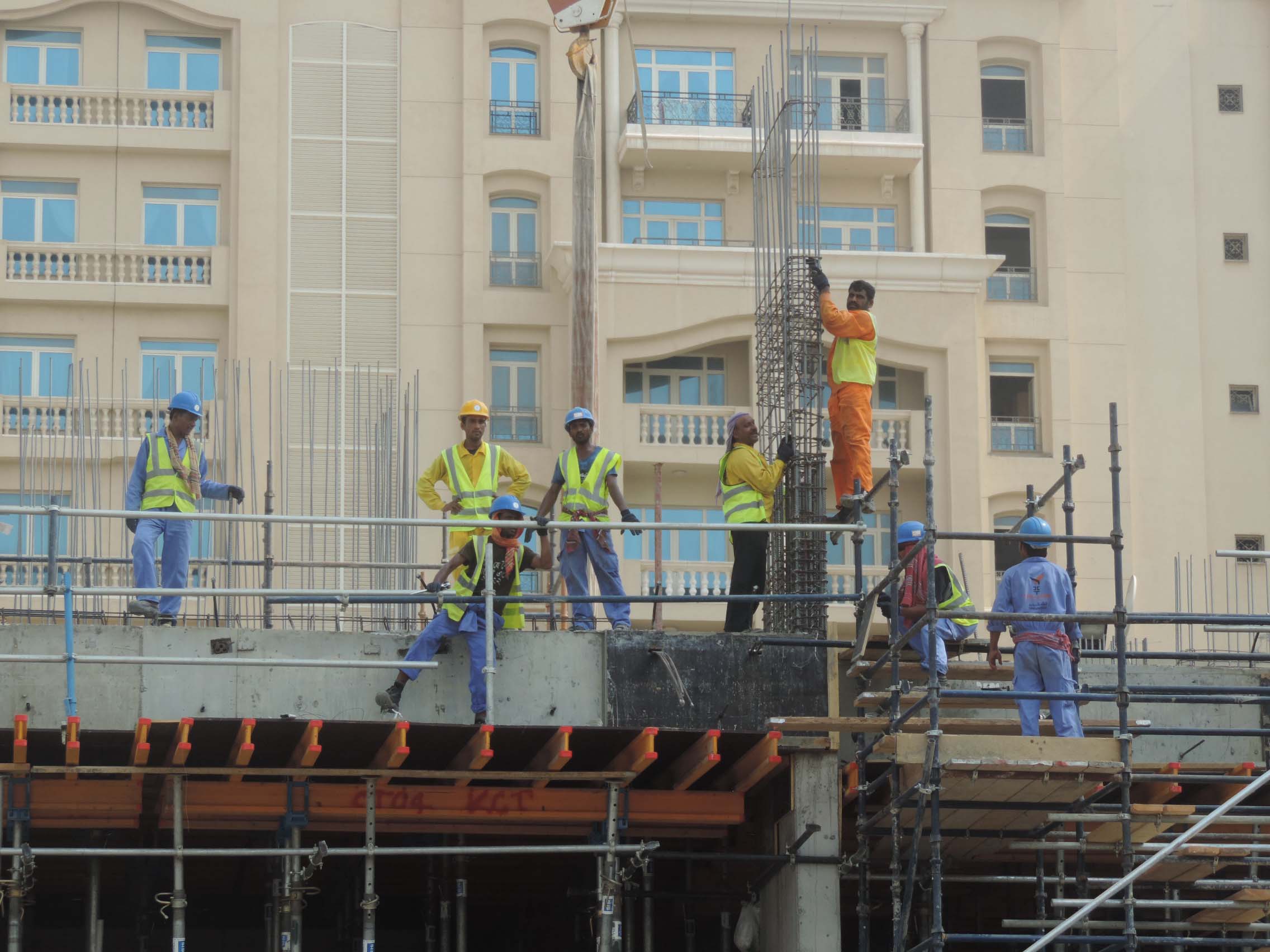
Qatar’s annual summer midday outdoor work ban expired today despite the high humidity and temperatures above 40C across Doha, allowing employers to send their staff to construction sites during the hottest part of the day.
Between June 15 and Aug. 31, employees are prohibited from working outdoors between 11:30am and 3pm and cannot work for more than five hours in the morning.

A Ministry of Labor and Social Affairs (MOLSA) spokesperson confirmed to Doha News that the ban was lifted today and that companies would not be sanctioned if their employees were working during the middle of the day.
But with the humidity making it feel closer to 55C at noon today, several construction firms said they were giving their employees more frequent and longer breaks, along with implementing other measures aimed at protecting the health of their workers.
That includes Linc, which provides facility management services at the Emiri Terminal at Hamad International Airport:
@dohanews Not at my place. I’ve extended the ban until the temperature and humidity are tolerable. Wish more would do the same.
— Alan Holden (@Baldrick2Dogs) September 1, 2015
Construction sites
The Bin Mahmoud neighborhood of Doha is dotted with construction sites as new apartment buildings sprout up. Around 2pm this afternoon, however, several projects appeared relatively quiet and virtually void of construction workers.

Shannon Engineering Co., which is leading the construction of a pair of residential buildings dubbed Noura Park, moved its day shift of approximately 340 workers into the shade during the hottest part of the day, according to health and safety officer Karlo Chavez.

Inside his office, he showed Doha News a heat stress chart that dictates the minimum amount of rest and water construction laborers should receive – and when work should stop entirely – depending on the temperature and humidity levels.
“We closely follow this index,” Chavez said. “We want to protect our people. We don’t want anyone getting heat stroke or (involved) in an accident.”
Additionally, he said the company provides its workers with ice and hydration powder for their water.
Several blocks over, work was in full swing at the Le Mirage construction site, where workers could be seen unloading materials from cranes.
Raafat El Hage, a manager at Challenger Trading and Contracting, said the company shortened its midday break from three hours to two today. However, he said the firm was considering a return to the three-hour stoppage if the hot temperatures persist throughout the week.

El Hage said that every hour, workers receive a 10-minute break in the shade and were encouraged to drink water constantly. Anyone feeling ill should stop work immediately, he added.
“If someone feels like they need a break, they can take some time,” El Hage said.
This afternoon, a steady stream of workers clad in blue overalls could be seen leaving the site to refill their water bottles outside an adjacent mosque. Several confirmed to Doha News that they had received a two-hour break that day, but declined to discuss their working conditions in detail.
While some companies appear to be taking steps to protect their workers during the heat through reduced work hours and high-tech cooling gear, the practices are not universal.
In its 2013 report on Qatar’s construction sector, Amnesty International documented several cases of men collapsing or suffering heat stroke after working long summer shifts.
And earlier this year, at least 42 companies had their construction sites temporarily closed by MOLSA for flouting the midday outdoor work ban during the first month the restrictions were in place.
Thoughts?







